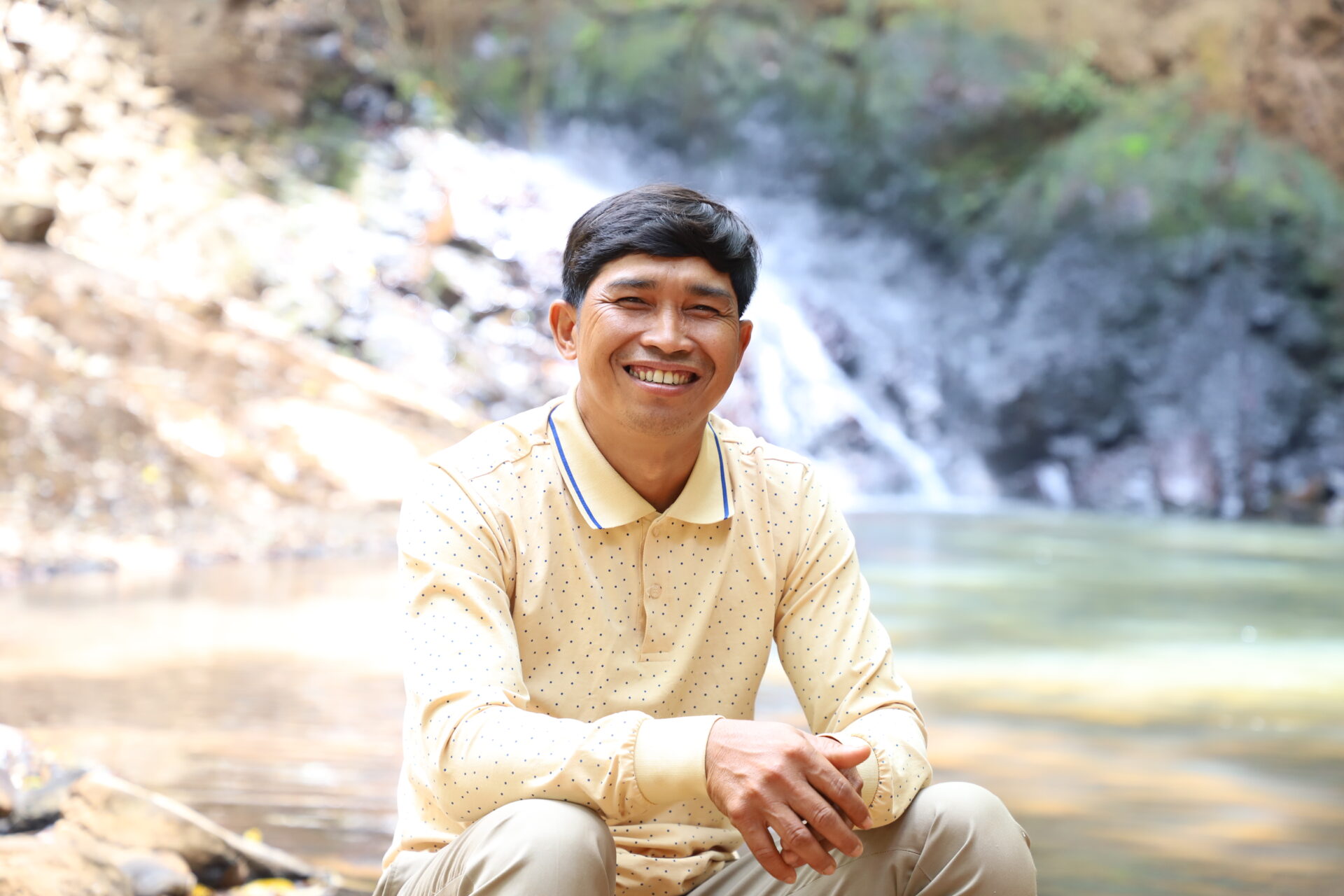“Through this ecotourism initiative, we are able to conserve the forest, protect our ancestral land, and preserve our tradition. And at the same time, wildlife’s habitat and their sources of food will be safeguarded.”


The Leng Kao Waterfall community-based ecotourism (CBET) initiative marks a new partnership between the Andoung Kraloeng community and the Keo Seima Wildlife Sanctuary REDD+ project. This initiative provides sustainable livelihood opportunities for Indigenous communities, giving them full control and management of the ecotourism projects. As a result, job creation, skills development, and financial benefits stay within the community, promoting economic resilience and independence.
These ecotourism initiatives are thoughtfully designed to respect and promote local cultures, traditions, and knowledge. They offer visitors authentic experiences that celebrate and preserve the community’s heritage and ancestral lands. Such efforts are crucial in maintaining the cultural fabric and environmental integrity of the region.
Mr. Thorn Tha, a committee member of Leng Kao Waterfall CBET, expresses his excitement about the new infrastructure developments at the ecotourism site.
“My greatest satisfaction is that we have built a trekking path, restrooms, and staircase for tourists to use for their convenience.”
Mr. Tha also highlights the dual benefits of the ecotourism initiative for both the community and wildlife:
“Through this ecotourism initiative, we are able to conserve the forest, protect our ancestral land, and preserve our tradition. And at the same time, wildlife’s habitat and their sources of food will be safeguarded.”
Mr. Thorn Tha explains the essential role of conservation in the success of these projects, stating,
“It is really important for all of us to protect forest and wildlife, because if these natural resources don’t exist, there would be no potential in creating this ecotourism”.
The Leng Kao Waterfall CBET initiative aligns with the broader goals of the Wildlife Conservation Society’s Keo Seima Wildlife Sanctuary REDD+ Project. It exemplifies how sustainable and community-managed ecotourism can offer Indigenous communities viable economic alternatives while preserving their cultural heritage and contributing to conservation efforts. This initiative integrates economic, cultural, and environmental goals, showcasing a model for holistic development.
